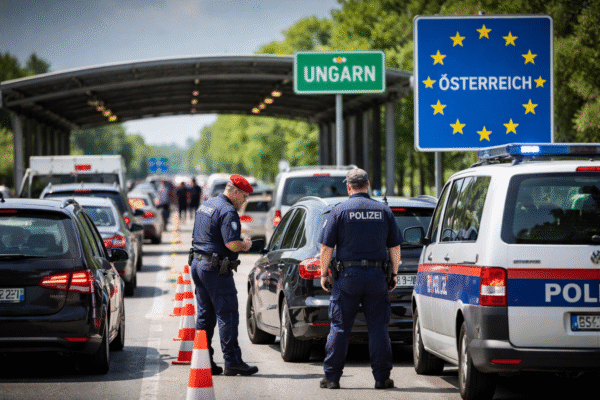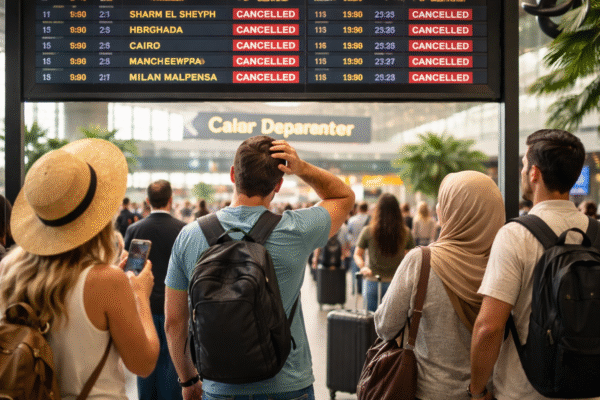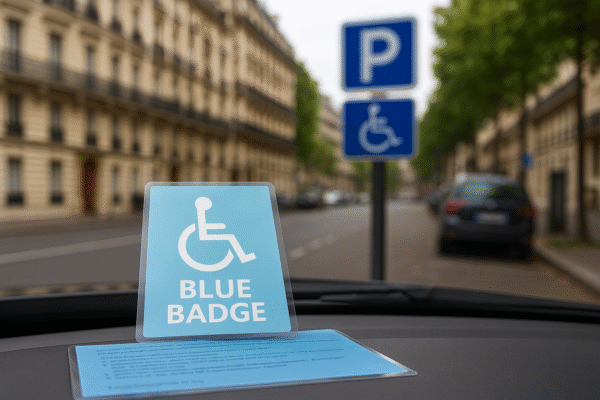British travelers with disabilities planning a trip to France are being urged to carry additional documentation when using their UK-issued Blue Badges abroad. The updated guidance from the UK Foreign, Commonwealth & Development Office (FCDO) is intended to help individuals with mobility challenges avoid fines or access restrictions while navigating France’s strict parking enforcement policies.
France remains one of the UK’s top tourist destinations, welcoming nearly 13 million British visitors annually (according to VisitBritain). With its proximity and cultural richness, it’s an attractive choice for both quick getaways and longer stays. However, recent updates to travel guidelines emphasize that those relying on the UK Blue Badge scheme must be well-prepared to use designated accessible parking spots in French cities.
Understanding the Blue Badge Scheme
The UK Blue Badge scheme offers parking privileges for individuals with significant mobility impairments. It allows badge holders to park closer to destinations, often in reserved bays. In the UK, the badge applies to on-street parking only and does not extend to private car parks or shopping centers, unless otherwise indicated.
Blue Badges are available to individuals with both visible and hidden disabilities, including conditions such as:
- Parkinson’s disease
- Dementia
- Autism spectrum disorders
- Severe arthritis or cardiovascular issues
- Long-term mobility limitations
Once issued, Blue Badges are typically valid for three years and can be used by badge holders whether they are drivers or passengers.
Updated Advice for Using Blue Badges in France
Under the latest FCDO advisory, UK citizens traveling to France with a Blue Badge must bring additional documentation to support their entitlement when using disabled parking spaces. This is particularly important in cities like Paris, Marseille, Lyon, and other regions with strict enforcement rules.
Required documents include:
- A translated copy of the Blue Badge (into French)
- A supporting letter from a medical professional confirming the need for accessible parking
- The original Blue Badge, clearly displayed
- Identification matching the badge holder
These measures aim to avoid fines or vehicle towing that can result from misunderstandings between UK-issued Blue Badges and French enforcement officers, who may not recognize UK documents without translation.
Driving in France: What UK Travelers Should Know
In addition to updated Blue Badge requirements, UK drivers must also be aware of French motoring regulations. Some key reminders:
- UK photocard driving licences are valid for driving in France
- Paper licences issued before 1998 may require an International Driving Permit (IDP)
- Motorists must carry a breathalyzer kit, reflective jacket, warning triangle, and headlamp adjusters
- Crit’Air emissions stickers are mandatory for driving in certain low-emission zones such as Paris and Grenoble
Applying for or Renewing a Blue Badge
- Proof of identity
- Proof of address
- Medical documentation
- Recent photograph
Processing can take up to 12 weeks, so applying well in advance of any international travel is recommended.
Importance of Preparation for Travelers with Disabilities
The Foreign Office’s enhanced guidance comes at a time when more travelers are emphasizing inclusive travel experiences. As France ramps up accessibility improvements across historic and cultural landmarks, UK tourists with disabilities can enjoy greater mobility – but only if they are equipped with the right documentation.
Travelers heading to Normandy, the French Riviera, or the Loire Valley should check local municipality rules, as enforcement can vary across France. In rural areas, signage may be unclear or unavailable in English, making proper translations of parking permits essential.
Safety and Travel Updates
Aside from parking regulations, the FCDO encourages travelers to:
- Register with the UK Government’s travel alert service
- Carry a European Health Insurance Card (EHIC) or UK Global Health Insurance Card (GHIC)
- Purchase comprehensive travel insurance, especially if traveling with medical needs
- Review local COVID-19 guidelines and vaccination requirements
A Safer, More Accessible French Holiday
With thoughtful preparation and adherence to the latest guidelines, UK travelers with mobility issues can enjoy a stress-free and enriching journey across France. From the charming villages of Provence to the iconic museums of Paris, accessibility is steadily improving across the country – and with the right documents in hand, Blue Badge holders can fully take part in the French travel experience.
By staying informed, organized, and proactive, travelers can ensure their journey is memorable for all the right reasons – and avoid potential fines or travel interruptions along the way.
For more travel news like this, keep reading Global Travel Wire


















